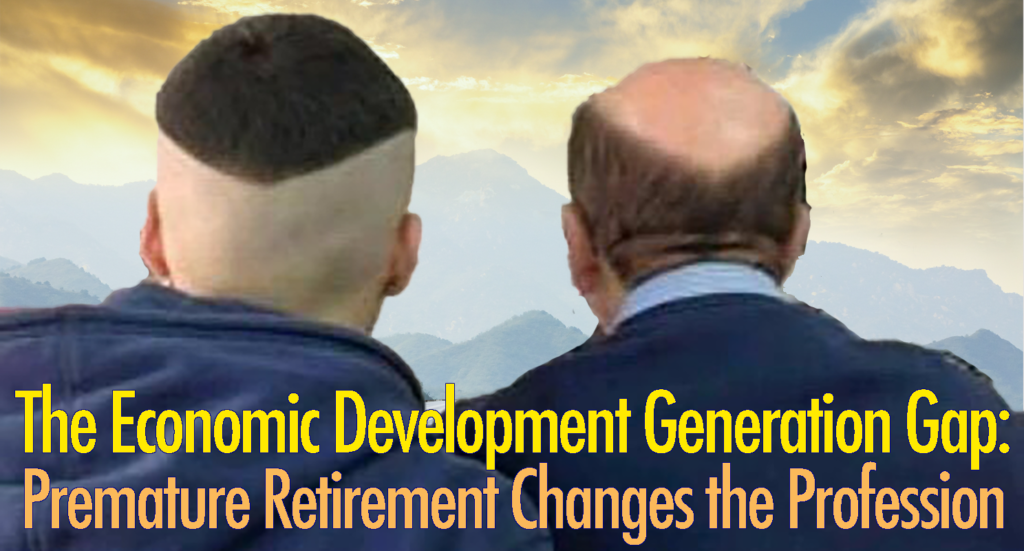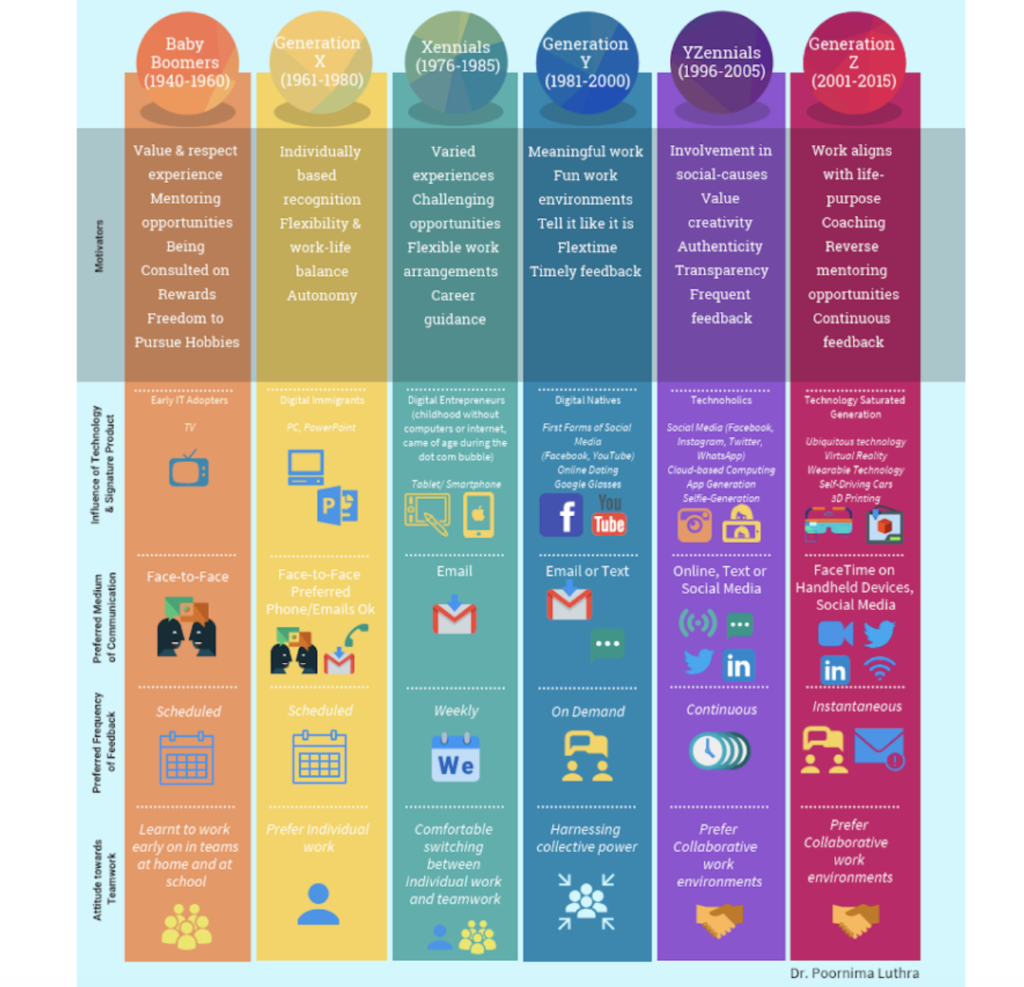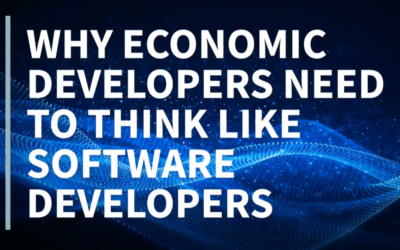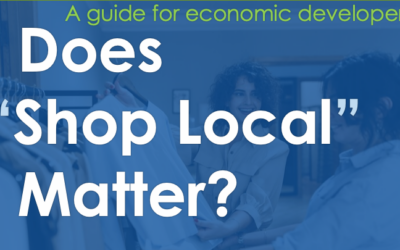
Summary: COVID-19 has caused a trend of forced early retirement for older economic developers and accelerated a generational shift of power in the profession of economic development.
The COVID-19 economic crisis and recovery have been uneven. Older workers who have lost their jobs are in a labor market that makes it harder to get rehired in the recovery. This has forced many Americans to retire early, including economic developers.
“Young workers’ participation in the labor force has nearly fully recovered – likely reflecting both lower health risks from the virus and a decline in college enrollment – while the participation of older workers and women has recovered more slowly,” wrote Joseph Briggs, an economist at Goldman Sachs (GS), in a note to clients in December 2020. He estimates that there were some 830,000 “excess retirees” in October, which represents about a quarter of the difference between the pre-pandemic workforce and the current workforce.
This macro trend is also impacting older economic developers, some of whom may be forced into early retirement, even if they are not ready to leave their careers behind.[1] The voluntary exit of retirement-age economic developers plus the forced retirement of pre-retirement-age older economic developers has accelerated a generational shift in the profession of economic development. As a result, this generational transfer of power represents fundamental changes to how the practice of economic development will occur for the future.
There are material differences of each generation, informed by distinct life experiences of their respective times.[2] This article is not a basic summary of generational differences; instead, it is how those generational differences express themselves in the economic development profession.
If you walked into a networking event at an economic development conference (back when they happened) you would likely see the segmenting of economic development professionals (EDpros) into different groups. On the surface it might have looked like the people gathering together to talk were simply grouping by age. But when you got into the conversations, the nuanced truth surfaced that they were also gathering by professional interest – and these interests were divergent because they have been shaped by different generational experiences and education. As such, what different generations are talking about related to economic development is different.
Although not exhaustive, here are some of the ways that the generational transition will express itself:
Leadership
The entire history of the practice of formal economic development has been predominantly led by Baby Boomers. Most of this generation is already retired with many more forthcoming retirements through voluntary or accelerated/early retirement. Generation X is already heading many EDOs or is one step removed from being the director. That step isn’t far away, and Generation X is going to lead differently and with different priorities/programs. Furthermore, the oldest from Gen Y/Millennials, who were pretty sure they were ready to be the boss straight out of college (that’s a joke based on a common generalization of Gen Y, so have a sense of humor!), now also have senior positions in EDOs; they, too, will have different styles and values.
Communication
Economic development has a mantra that we are a relationship driven profession. However, relationships are enabled by communication, but the preferred tools of communication are very different by generation. Boomers: face-to-face; Gen X: messaging or email; Gen Y: online/social and text; Gen Z text/video. This dynamic has impacts on economic development programs. Coming out of COVID you’re going to see some Boomers say we need to redouble efforts and budgets for as many in-person meetings as possible. Gen Y and Z may say, “We’ve been effectively working remotely, and it proves what we’ve said all along: We can work digitally, and we are wasting huge amounts of money and time on planes, cars, and conferences”. The reality of what is needed is probably somewhere in the middle, perhaps bridged by Gen X.
Digital
There are older Boomer EDpros who have their assistants print out their emails so they can read them. So, investing in digital economic development is unlikely to be as much of a budget priority or something they can lead with a deep understanding of how the technology integrates across operations, strategy, and tactics. Gen X experienced the introduction of PCs. Millenials and Gen Z have grown up as digital natives; they don’t even know what a world without the Internet is like. All economic development will be integrated with, or driven by, digital economic development. All the best EDpros of generations X, Y, and Z won’t want to work for any place that doesn’t think and operate this way.
Social
Baby boomers were the first to experience two income households as women entered the workforce, but younger generations expect that those two incomes should be equitable. The fewer, older female EDpros have led the way for a larger share of women that are now in the profession – and who have taken and are taking top leadership positions in EDOs. While each generation has witnessed social and economic violence toward people of color – such as during the civil rights movement, crop boycotts over farmworker rights, the urban riots following the beating of Rodney King, and the nationwide protests after the killing of George Floyd- the younger generation of economic developers grew up in a more racially integrated society. They have a matter-of-fact understanding that racial and gender economic inequality is a barrier to community economic development and therefore must be engaged.
Training
The formal origins of the economic development profession largely revolved around recruiting outside businesses with a value proposition of a lower cost of doing business aided by government-funded financial incentives. That might have succeeded in a different era’s economy in which the competition was that Alabama was cheaper than New York. Today, there is no financial incentive that can make Alabama cheaper than Vietnam, and today those places (and all of the world) are in the same competition for business. Also, younger generations of economic developers have been educated in colleges where they studied the research from the New York Times, Good Jobs First, and academic publications that reveal the problems with this type of policy.
Younger generations of economic development are opting out of an attraction-and-incentive-first approach to economic development and instead approaching a balanced approach of local business support, existing business expansion, entrepreneurship, innovation, and attraction. Also, a heavy focus on outside business solutions is incompatible with their generation’s values of personal/professional integration. Instead, these generations are going to do their economic development the way they live their personal lives. They support local craft breweries, eat at locally owned small businesses, and vacation in AirBnBs.
Oversight
Just as economic development CEOs/directors/presidents are retiring, so are members of their boards or the elected officials that provide oversight and strategic direction for economic development organizations and departments. As younger generations of board members and elected officials take oversight and leadership positions, their different perspective based on growing up in different eras will impact changes to economic development policy and programs. Some of these changes may be altering existing programs whereas others may result in the removal or addition of programs.
Economy
Economic development is obviously tied to the economy, but what was economically desirable for yuppies in the 1980s is not necessarily desirable for the adults of the 2020s that are now in their 40s, 30s, and 20s. The differences are many, but they all have huge impacts on what type of economic development programs you aspire to implement. For example, having one job for a lifetime vs. many jobs in several years; owning a home vs. the flexibility to change locations (remember people who couldn’t afford to move in 2009 because they owned a house, even if they found a job somewhere else?); owning anything non-essential vs. the shared economy – including staying at an AirBnB; working for someone else vs. working for yourself in the gig economy. These global economic changes impact what will be effective local economic development.
Environment
The topic of environmental crisis is especially hard to summarize. It is perhaps one of the great generational divides in which younger generations blame the older generations for the environmental costs they will have to pay when the older EDpros are, uh, really gone. Nothing is likely to have a bigger impact on the economy and society than the changes being experienced from extreme weather change. The fires on the west coast and the increasingly more powerful hurricanes in the southeast are benign compared to the droughts and ocean level rise that are predicted to occur and which will cause the mass exodus of environmental refugees across the globe. When millions of people are in forced migration within a context of scarcity, it will create economic chaos that today’s economic developer has to prepare for and will not be able to avoid.
The emerging leaders of economic development from new generations will need to be the ones to facilitate the transition to a sustainable economy. It’s odd because one of the colloquial terms used in our profession to describe a type of economic developer is a “smokestack chaser”. Ironically, it’s used as a derogatory term by younger economic developers, but plenty of the now-retired EDpros would wear the name as a badge of honor. I think both are right in how they feel about it – for their time. But the time is changing.
The trend of economic development change by generational shift also has implications for vendors to the economic development profession:
Marketing
It’s difficult to find anyone from Gen Y or Z that would spend ANY money on print advertising. This could result in a mainstay of recipients of economic development advertising budgets going away completely if they don’t transition to digital or expand their service offerings. Already, print publications such as Expansion Management, Plants, Sites & Parks, and other magazines have gone out of business because they weren’t able to transition or lost market share to competitors when spending on print publications continued to become scarce.
Professional Development and Education
There is a role for face-to-face learning, but there is a growing expectation of online/on-demand learning. Younger generations have grown up learning to identify problems and figure out how to solve them independently, often by searching for the answer online through resources such as YouTube videos. There is a rapidly growing body of educational information online which is current, relevant, and mostly free. Universities and private sector vendors to the economic development profession have created significant content for the public good and for business development. This represents an existential threat to the state, regional, national, and international economic development associations that are currently sustainable largely through a revenue stream of in-person conferences typically marketed as professional development and economic development courses. These associations will either need to transition to adjust to the on-demand digital learning that will be expected, develop new revenue streams, or cut expenses to remain in existence.[3]
Future Change
You can predict the future through demographics. You know what’s coming. What COVID did was quicken these trends by accelerating the exit of older economic developers and replacing them with newer generations of leadership which will implement different types of economic development programs and policy.
[1] Although there have been a number of early retirements, none are being listed here as it could impact the reputation of those economic developers, especially if they want to come back to the profession in the future in some new capacity.
[2] The problem with writing about broad trends using generalizations (and not stereotypes, unless identified as a joke) is that not every person of every generation fits neatly into these generational generalizations, which is good, as it shows that people are also unique. However, the broader trends still hold true.
[3] There are benefits to economic development associations continuing to sustain themselves to provide education and professional development value into the future, as these associations have a history of real value. These operational risks are pointed out so they can evolve and remain solvent.




